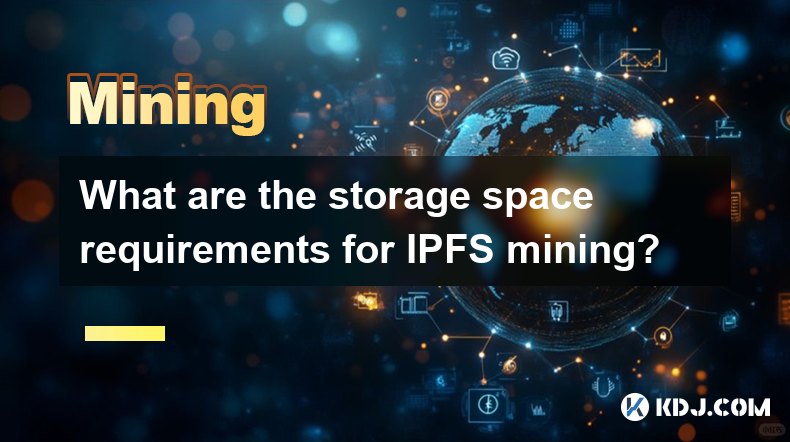-
 Bitcoin
Bitcoin $85,089.0315
0.57% -
 Ethereum
Ethereum $1,614.3774
1.33% -
 Tether USDt
Tether USDt $0.9999
0.00% -
 XRP
XRP $2.0829
0.00% -
 BNB
BNB $591.0001
-0.35% -
 Solana
Solana $138.5959
3.30% -
 USDC
USDC $0.9998
-0.01% -
 Dogecoin
Dogecoin $0.1571
-0.56% -
 TRON
TRON $0.2427
0.55% -
 Cardano
Cardano $0.6273
-0.03% -
 UNUS SED LEO
UNUS SED LEO $9.3086
0.78% -
 Chainlink
Chainlink $12.9396
2.40% -
 Avalanche
Avalanche $20.0467
4.62% -
 Stellar
Stellar $0.2476
2.61% -
 Toncoin
Toncoin $2.9577
-1.75% -
 Shiba Inu
Shiba Inu $0.0...01227
0.05% -
 Hedera
Hedera $0.1662
0.20% -
 Sui
Sui $2.1580
0.58% -
 Bitcoin Cash
Bitcoin Cash $334.1784
-2.37% -
 Hyperliquid
Hyperliquid $17.8310
6.21% -
 Polkadot
Polkadot $3.7857
2.37% -
 Litecoin
Litecoin $75.7246
-1.01% -
 Bitget Token
Bitget Token $4.5165
2.75% -
 Dai
Dai $0.9999
-0.01% -
 Ethena USDe
Ethena USDe $0.9992
-0.01% -
 Pi
Pi $0.6449
4.00% -
 Monero
Monero $211.6735
-2.16% -
 Uniswap
Uniswap $5.3092
2.24% -
 Pepe
Pepe $0.0...07367
1.39% -
 OKB
OKB $50.8291
0.56%
What are the storage space requirements for IPFS mining?
IPFS mining demands substantial storage (terabytes, not gigabytes), varying based on hardware (HDDs or SSDs), desired storage contribution, and mining strategy. Profitability increases with more storage, but significant upfront investment is needed.
Mar 23, 2025 at 06:07 am

Key Points:
- IPFS storage requirements are highly variable and depend on several factors, including the type of hardware used, the amount of storage you want to provide, and the chosen mining strategy.
- There's no single "minimum" requirement, but realistically, you'll need a significant amount of hard drive space to participate profitably.
- Running an IPFS node, even a small one, requires a considerable amount of storage compared to other types of cryptocurrency mining.
- Choosing appropriate hardware and understanding the implications of storage space limitations is crucial for successful IPFS mining.
What are the storage space requirements for IPFS mining?
The question of storage space for IPFS mining isn't easily answered with a single number. Unlike Bitcoin mining, which relies on computational power, IPFS mining (more accurately described as providing storage and bandwidth) necessitates substantial disk space. The amount needed depends on several key factors.
First, consider the type of hardware you intend to use. Solid State Drives (SSDs) offer faster read/write speeds, ideal for frequent data access, but are generally more expensive per gigabyte than Hard Disk Drives (HDDs). HDDs provide more storage capacity at a lower cost, but their slower speeds can impact performance, especially with high data volume. The choice between SSDs and HDDs will directly influence the amount of storage you can realistically afford.
Second, the amount of storage you want to provide is a critical factor. You can choose to contribute a small portion of your storage capacity to the network, acting as a smaller node. However, larger nodes offering more storage space are often rewarded more generously by the network. The more storage you offer, the more space you'll need.
Third, your chosen mining strategy will influence storage needs. Some miners choose to focus on specific types of data, such as high-demand files, requiring less overall storage but focusing on a niche. Others opt for a more general approach, aiming to store a wider variety of data, needing significantly more storage capacity.
There’s no magic number, but for effective participation, you should anticipate needing terabytes, not gigabytes, of storage. A few terabytes might be sufficient for a small-scale operation, but profitability usually increases with greater storage capacity. Consider that the IPFS network is vast and continuously expanding; the demand for storage space is also constantly increasing.
Let's explore some scenarios:
- Scenario 1: Small-scale participation: You might allocate a few terabytes (e.g., 2-4 TB) of HDD space. This would allow you to participate, but your potential earnings would likely be lower than those with more significant storage capacity.
- Scenario 2: Medium-scale operation: A more significant commitment might involve 10-20 TB of HDD space, perhaps supplemented with a smaller amount of SSD space for caching frequently accessed files. This would improve performance and potentially increase earnings.
- Scenario 3: Large-scale operation: High-capacity storage arrays with multiple terabytes or even petabytes of HDD space would be necessary for serious involvement. This approach requires a substantial investment in hardware and infrastructure.
Choosing your hardware:
- Hard Disk Drives (HDDs): Offer high storage capacity at a lower cost per gigabyte, suitable for storing large amounts of data. However, slower read/write speeds can affect performance.
- Solid State Drives (SSDs): Provide faster read/write speeds, improving performance, especially for frequently accessed files. However, they are significantly more expensive per gigabyte than HDDs.
- Network Infrastructure: A reliable and high-speed internet connection is essential for effective IPFS participation. Upload and download speeds will directly impact your ability to contribute to the network and receive rewards.
Beyond Storage: Bandwidth Considerations
Beyond storage, bandwidth plays a vital role. Efficiently providing storage on IPFS requires sufficient upload and download bandwidth to handle data requests from other nodes. Insufficient bandwidth can negatively impact your performance and earnings.
Frequently Asked Questions:
Q: Is there a minimum storage requirement for IPFS mining?
A: There isn't a strict minimum. However, a very small amount of storage will likely result in negligible rewards. You need sufficient storage to attract and retain data, making a substantial investment worthwhile.
Q: Can I use cloud storage for IPFS mining?
A: Technically, you could use cloud storage, but it's usually less cost-effective than using your own hardware. Cloud storage providers often charge for bandwidth and data transfer, reducing your potential profits.
Q: What are the best types of hard drives for IPFS mining?
A: For large-scale operations, HDDs are often preferred due to their cost-effectiveness. However, a hybrid approach using both HDDs for bulk storage and SSDs for caching frequently accessed data can optimize performance.
Q: How much can I earn from IPFS mining?
A: Earnings are highly variable and depend on numerous factors including the amount of storage provided, the type of data stored, network demand, and the overall health of the IPFS ecosystem. There's no guaranteed return.
Q: Is IPFS mining profitable?
A: Profitability depends on the investment in hardware, operating costs (electricity, internet), and the fluctuating value of any rewards received. Careful analysis of these factors is essential before committing to IPFS mining.
Disclaimer:info@kdj.com
The information provided is not trading advice. kdj.com does not assume any responsibility for any investments made based on the information provided in this article. Cryptocurrencies are highly volatile and it is highly recommended that you invest with caution after thorough research!
If you believe that the content used on this website infringes your copyright, please contact us immediately (info@kdj.com) and we will delete it promptly.
- 2000 €1 coin celebrating 80 years of Finnish independence is among the most coveted on the collectors' market
- 2025-04-20 04:35:12
- Bitcoin & Ethereum ETFs Continue To Stumble!
- 2025-04-20 04:35:12
- The future growth prospects of Holo (HOT) coin
- 2025-04-20 04:30:13
- Canary Capital Files a Form S-1 Registration with the SEC to Launch a Tron (TRX) Cryptocurrency Spot ETF
- 2025-04-20 04:30:13
- PancakeSwap (CAKE) price prediction 2025, 2030: Will the cryptocurrency token price increase?
- 2025-04-20 04:25:12
- Pi Network Reveals Detailed Roadmap for Mainnet Migration and Token Distribution
- 2025-04-20 04:25:12
Related knowledge

How to judge the stability and reliability of the mining pool?
Apr 19,2025 at 02:08pm
When engaging in cryptocurrency mining, choosing the right mining pool is crucial for maximizing your returns and ensuring a stable mining experience. The stability and reliability of a mining pool can significantly impact your overall success in mining. Here, we will explore the key factors to consider when evaluating the stability and reliability of a...

How to deal with abnormal noise during mining machine operation?
Apr 17,2025 at 01:35am
Mining machines are essential tools for cryptocurrency miners, but they can sometimes produce abnormal noises that may indicate underlying issues. Understanding how to identify and address these noises is crucial for maintaining the efficiency and longevity of your mining equipment. This article will guide you through the process of dealing with abnorma...

How to maintain anonymity when mining?
Apr 17,2025 at 06:01pm
Maintaining anonymity when mining cryptocurrencies is crucial for many miners who wish to protect their privacy and security. This article will guide you through various strategies and tools that can help you achieve a high level of anonymity while engaging in mining activities. Understanding the Importance of Anonymity in MiningAnonymity in the context...

How to automate mining tasks through scripts?
Apr 18,2025 at 01:29pm
In the world of cryptocurrency, mining remains a crucial activity for generating new coins and securing blockchain networks. Automating mining tasks through scripts can significantly enhance efficiency and reduce manual labor. This article delves into the intricacies of automating mining tasks, providing a comprehensive guide on how to achieve this usin...

How to switch mining algorithms in the mining pool?
Apr 18,2025 at 12:00pm
Switching mining algorithms in a mining pool can be a strategic move for miners looking to optimize their mining operations. This process involves several steps and considerations, and understanding how to navigate it can significantly impact a miner's efficiency and profitability. In this article, we will explore the detailed steps required to switch m...

How to avoid reduced income due to network delays when mining?
Apr 19,2025 at 12:14am
Mining cryptocurrencies can be a lucrative endeavor, but it comes with its own set of challenges, one of which is network delays. These delays can significantly impact your mining income by causing you to miss out on block rewards and transaction fees. In this article, we will explore various strategies to mitigate the effects of network delays and ensu...

How to judge the stability and reliability of the mining pool?
Apr 19,2025 at 02:08pm
When engaging in cryptocurrency mining, choosing the right mining pool is crucial for maximizing your returns and ensuring a stable mining experience. The stability and reliability of a mining pool can significantly impact your overall success in mining. Here, we will explore the key factors to consider when evaluating the stability and reliability of a...

How to deal with abnormal noise during mining machine operation?
Apr 17,2025 at 01:35am
Mining machines are essential tools for cryptocurrency miners, but they can sometimes produce abnormal noises that may indicate underlying issues. Understanding how to identify and address these noises is crucial for maintaining the efficiency and longevity of your mining equipment. This article will guide you through the process of dealing with abnorma...

How to maintain anonymity when mining?
Apr 17,2025 at 06:01pm
Maintaining anonymity when mining cryptocurrencies is crucial for many miners who wish to protect their privacy and security. This article will guide you through various strategies and tools that can help you achieve a high level of anonymity while engaging in mining activities. Understanding the Importance of Anonymity in MiningAnonymity in the context...

How to automate mining tasks through scripts?
Apr 18,2025 at 01:29pm
In the world of cryptocurrency, mining remains a crucial activity for generating new coins and securing blockchain networks. Automating mining tasks through scripts can significantly enhance efficiency and reduce manual labor. This article delves into the intricacies of automating mining tasks, providing a comprehensive guide on how to achieve this usin...

How to switch mining algorithms in the mining pool?
Apr 18,2025 at 12:00pm
Switching mining algorithms in a mining pool can be a strategic move for miners looking to optimize their mining operations. This process involves several steps and considerations, and understanding how to navigate it can significantly impact a miner's efficiency and profitability. In this article, we will explore the detailed steps required to switch m...

How to avoid reduced income due to network delays when mining?
Apr 19,2025 at 12:14am
Mining cryptocurrencies can be a lucrative endeavor, but it comes with its own set of challenges, one of which is network delays. These delays can significantly impact your mining income by causing you to miss out on block rewards and transaction fees. In this article, we will explore various strategies to mitigate the effects of network delays and ensu...
See all articles























































































